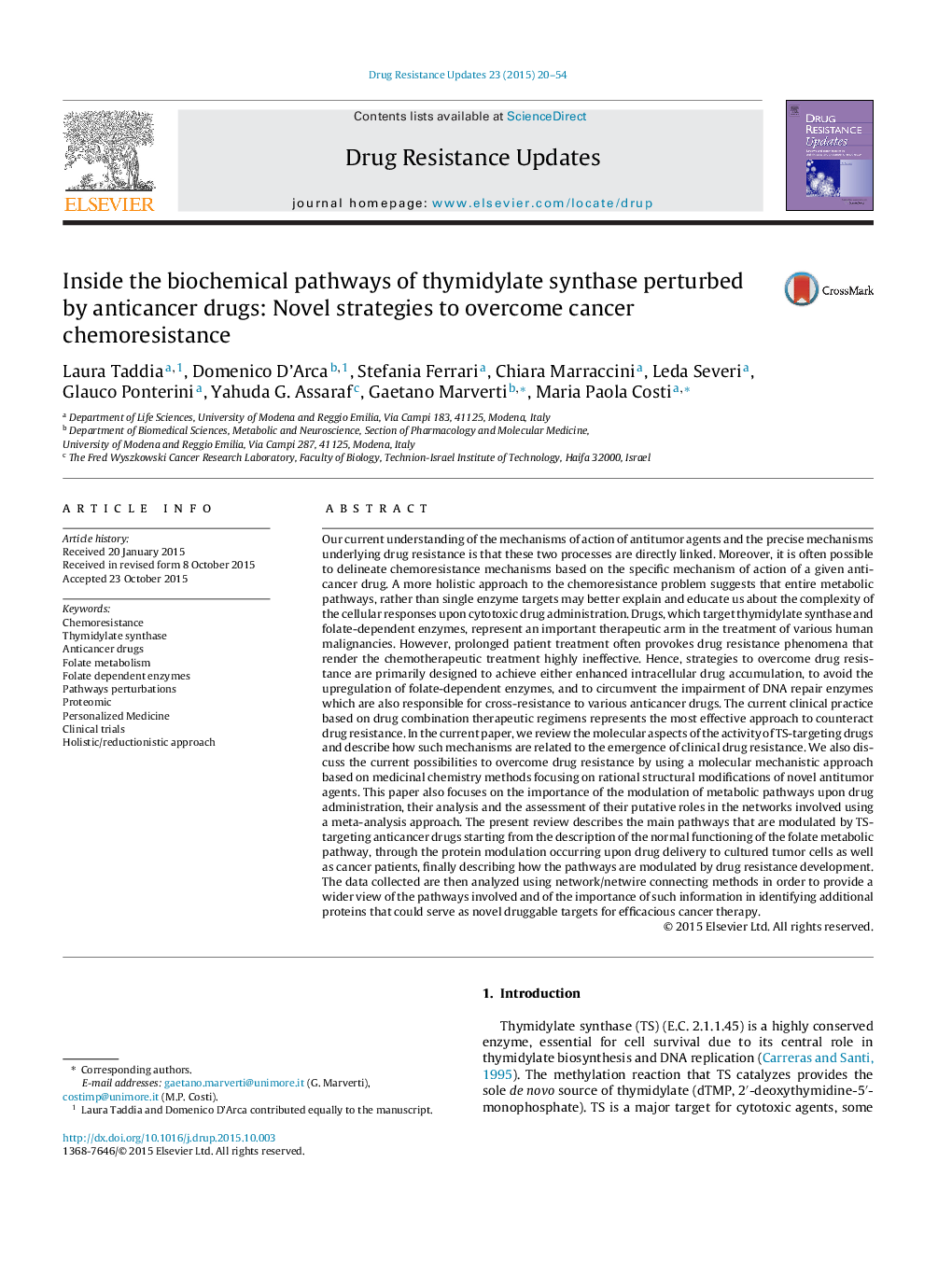| کد مقاله | کد نشریه | سال انتشار | مقاله انگلیسی | نسخه تمام متن |
|---|---|---|---|---|
| 2120314 | 1546840 | 2015 | 35 صفحه PDF | دانلود رایگان |
Our current understanding of the mechanisms of action of antitumor agents and the precise mechanisms underlying drug resistance is that these two processes are directly linked. Moreover, it is often possible to delineate chemoresistance mechanisms based on the specific mechanism of action of a given anticancer drug. A more holistic approach to the chemoresistance problem suggests that entire metabolic pathways, rather than single enzyme targets may better explain and educate us about the complexity of the cellular responses upon cytotoxic drug administration. Drugs, which target thymidylate synthase and folate-dependent enzymes, represent an important therapeutic arm in the treatment of various human malignancies. However, prolonged patient treatment often provokes drug resistance phenomena that render the chemotherapeutic treatment highly ineffective. Hence, strategies to overcome drug resistance are primarily designed to achieve either enhanced intracellular drug accumulation, to avoid the upregulation of folate-dependent enzymes, and to circumvent the impairment of DNA repair enzymes which are also responsible for cross-resistance to various anticancer drugs. The current clinical practice based on drug combination therapeutic regimens represents the most effective approach to counteract drug resistance. In the current paper, we review the molecular aspects of the activity of TS-targeting drugs and describe how such mechanisms are related to the emergence of clinical drug resistance. We also discuss the current possibilities to overcome drug resistance by using a molecular mechanistic approach based on medicinal chemistry methods focusing on rational structural modifications of novel antitumor agents. This paper also focuses on the importance of the modulation of metabolic pathways upon drug administration, their analysis and the assessment of their putative roles in the networks involved using a meta-analysis approach. The present review describes the main pathways that are modulated by TS-targeting anticancer drugs starting from the description of the normal functioning of the folate metabolic pathway, through the protein modulation occurring upon drug delivery to cultured tumor cells as well as cancer patients, finally describing how the pathways are modulated by drug resistance development. The data collected are then analyzed using network/netwire connecting methods in order to provide a wider view of the pathways involved and of the importance of such information in identifying additional proteins that could serve as novel druggable targets for efficacious cancer therapy.
Journal: Drug Resistance Updates - Volume 23, November 2015, Pages 20–54
